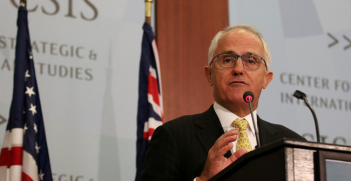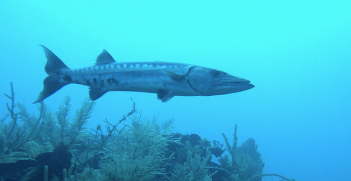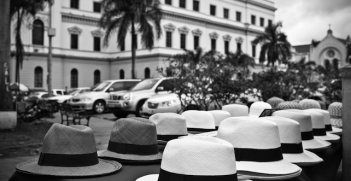The Ottoman Caper Part II

A month has passed since the ill-fated coup d’état in Turkey of 15 July. Tens of thousands of suspected Gulenists have been rounded up and either charged by the justice system or relieved of their employment. However, removing Gulenists from the upper-level professions has left the Turkish economy vulnerable to future troubles and could potentially weaken the country’s social fabric.
The failure of the 15 July coup has led to serious consequences inside Turkey where President Recep Tayyip Erdogan, seemingly able to interpret divine will, indicated that the coup was a “gift from heaven”. For those who interpret the coup aftermath as a coup de force by President Erdogan to concentrate power in his hands, there is doubtless some truth to that allegation although Erdogan had begun the process years ago. What is somewhat surprising is the scope of repression of the so-called Gulenists and their organisations now identified by the state as coup plotters.
According to official ruling AK Party claims, the coup plotters were members of the Gulen movement in cahoots with newer generation Kemalists in the military unhappy with the repeated AK Party attempts to neutralise the role of the armed forces by stacking senior posts with AK sycophants. Yet the ruling party singles out the Gulenists for special blame for this coup and extends it to a minority of military officers also suspected of being Gulenists.
The normally calm and serene Turkish diplomatic sources erupted in fury attempting to explain the coup as the work of the Gulen, deemed as a terrorist organisation by the Turkish government. If it is a terrorist organisation, it would be the first one in the history of political Islam managed and operated by a Sufi Muslim. Experts in Islamic law and politics would flinch at such an arbitrary unsubstantiated conclusion.
A government source claimed that at some point during the fateful night of 15 July, the Turkish chief of the armed forces was kidnapped by coup plotters and sequestered in a room where he was given a telephone. On the other end of the line was Fetullah Gulen himself, or so the story goes. These same sources claim that the chief of the armed forces stubbornly refused the kidnappers’ entreaties to speak with Gulen.
The argument claiming the existence of a secret alliance between Kemalist secularist officers hostile to AK Party pro-Islamist measures and the Gulen movement makes little sense. There may have been some limited overlap of views since 2013 when Erdogan began to turn on his Gulenist allies but, by and large, these are two separate groups with much less in common than what AK Party ideological pundits would have us believe.
First, the Gulenist movement has never had a history of armed violence either inside or outside Turkey. Gulen, now 75 years old, is himself a peaceful Islamist activist and theorist steeped in the values of Sufi Islam. He openly extolls the virtues of multi-confessionalism especially when presenting the movement to foreigners. He is a Turkish nationalist but his movement was perfectly content with the slow but sure momentum initiated by the AK Party towards a more Islamist society. For example, the secular Gezi Park protests in Istanbul against the pro-Islamist AK Party were not supported by the Gulenists.
In retrospect, this may have been one of their key errors. As Turk nationalists, the Gulenists are very wary of the Kurds and their territorial ambitions. They are in full support of any measures seeking to destroy the left-wing, secularist PKK and are unsupportive of Kurdish educational and language rights inside Turkey. The Gulenists interpret Kurdish demands of the Turkish Islamist state as examples of fitna, or division, in Islam and are solidly against such demands. In the Gulenist view, the Kurds divide the social and political compact of Islam and contest the legitimacy of Turkish nationalism.
At the same time, the Kemalists also oppose Kurdish rights. Both do so in the name of Turkish nationalism. However their historical and political narratives on Turkish nationalism differ greatly, one seeking to undermine the secular legacy of Ataturk, the other seeking to reinvigorate it. To produce a narrative of the 15 July coup linking these two groups and accusing them of conspiring together to unseat Erdogan is simply far-fetched.
On the other hand, President Erdogan can be forgiven for having some doubts about the Gulenists and their goals inside Turkey. There should be little or no doubt about the ideological objectives which were in sync with those of the ruling AK Party and its move in the Islamise Turkish society. Nevetheless, it is true that the Gulenist movement had infiltrated many sections of Turkish society. Gulenists occupied positions of importance in the fields of public administration, education, security apparatus and business. And the secretive nature of the Gulenist movement is also true.
Abroad, the Gulenists hide behind the veil of soft Islam and multi-confessionalism. They show videos regularly with Gulen and many leaders of the Western world including presidents, prime ministers, senators etc. Inside Turkey, the Gulenists are responsible for the crackdown on Kurdish groups in eastern Turkey, working mainly through the police. Like the free masonry of yesteryear, the Gulenists form an elitist movement encouraging exchanges of contracts, promotions and influence peddling among its members. In this regard, the movement could be said to be a powerful fifth column capable of undermining the desires of the political state.
The scope of repression against the Gulenists since 15 July has been impressive and wide. Removing Gulenists from the university and educational sector will be costly. The Gulenist schools were the best Turkey has to offer. Now they are gone and the educational sector in Turkey will be in disrepair for the next 20 years. The Gulenists constitute a good 35 per cent or more of the upper level professions in Turkey and firing them has left the Turkish economy without valuable human capital and expertise. The economic effects of Erdogan’s reckless war on Gulen and the Gulenists will be telling. Turkey will be unable to fill the void left by this elite group of professionals.
In the aftermath of the coup, several Western states have made statements urging respect for the rule of law and restraint on the part of the Turkish authorities. Western states have condemned the coup and defended the duly elected government of President Erdogan. However, Amnesty International’s report on the treatment of those supportive of the coup has revealed excesses, which extend to some who had no hand at all in the events of 15 July.
As expected, the Turkish president brushed aside any and all complaints and his visit to Russia and meetings with the Russian leader were meant, in part, to send a warning to those critics. This is a measure of the West’s waning influence in the region and sheepish European concerns about human rights are not very high on the Turkish priority list.
Gulen and the Gulenists have never been known for their violence. Although one may disagree with their pro-Islamist ideology and the means of promoting it in Turkey and abroad. They constitute highly skilled professional and educational elite. They are not known enemies of democracy and fomenters of violent rebellion as the Turkish state now professes. Their secretive nature and impressive numbers in Turkey require monitoring. However, it is open to debate if Erdogan has seized the right moment to come to terms with this movement, a movement that essentially promotes similar Islamist policies and values. Were they really responsible for the 15 July coup?
The question for Erdogan is of another sort: have your repressive measures simply weakened Turkey’s economy and social fabric thereby ensuring future troubles, some of which may well feature Gulenists as key actors?
Dr Bruce Mabley is the director of the Mackenzie-Papineau Group think tank based in Montreal which is devoted to analysis of international politics.
Part 1 of the series titled “The Ottoman Caper” looked at the failure of the 15 July coup, its immediate consequences and how it meant a return to a civilian dictatorship by President Erdogan.
This article is published under a Creative Commons Licence and may be republished with attribution.





